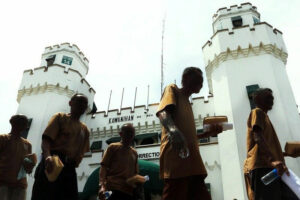Just another family business

PART of the frustration of political observers, especially expatriates, in understanding politics and politicians stems from a preconceived idea of what politics should be. Hint: it has nothing to do with ideology or an economic philosophy of how wealth should be redistributed. (Wait, okay that one may be relevant here.)
Local politics needs to be viewed with a different lens.
The political party here is driven by individuals and their dynasties. The party is not distracted by ideologies or political platforms. There is no such thing as a conservative party (right of center or far right) that promotes small government and a strong private sector, making life easier for business, including those merging together or putting up new ones. There is just a family that dominates a certain region and exercises its clout with its proven voting machinery, boosted by the pandemic handouts.
Personal qualifications and leadership qualities of a candidate for a position, say Senator, are not relevant. Celebrity status in another field, like entertainment, can get one to the top spot in number of votes.
The preferred method of influencing change is not persuasion or the strength of philosophical ideas. Social pressure, using trolls and fake reports in digital media, leads the charge. This is complimented by more traditional financial approaches, like corporate contributions and leveraging future clout.
The absence of ideology facilitates switching parties to the winning side. This also promotes crony appointments to government positions, by simply surrounding oneself with people one knows rather than what these people know. Loyalty trumps competence, though admittedly allies need not be lightweights. It’s also easy to discard and replace, even when the seats have hardly been warmed.
There are no politically affiliated think tanks promoting a particular ideological view. What we have are economic forecasting groups, polling organizations, investigative reporters, and political analysts dwelling on territorial disputes with another nation. These are always available for interviews, seminars, and rolling out thought pieces for publication. They provide a point of view packaged in articulate and research-based talking points.
Attempts at appealing to a politician’s nationalism are futile. Still, selfish moves that benefit the family business must be cloaked with the rhetoric of democratic ideals, the rule of the majority, due process of law, and sundry sanctimonious claims to putting the country above self, net of commissions.
There are players in the political scene that are not politicians. Some are law firms, business groups, big media, or all three. Once these movers and shakers are identified along with their interests, it is a simple matter of getting out of their way or riding their wave. These political attachments can cause legislative investigations to be unleashed on rivals, without leaving any footprints.
The only refuge for businessmen or any interest group (eligible for party list representation) is to find players whose interests coincide with theirs. While this perpetuates personality politics, it mobilizes cause-oriented groups, including those who advocate private enterprise and the wisdom of markets, to plunge gamely into politics if they mean to change things or protect the status quo.
If politics is a business, does business also have to be political? As John Stuart Mill in his classic Political Economy so well understood, the two branches of study are as intertwined as Siamese twins. The businessmen (especially conglomerates and public utilities) understand that not all decisions are corporate in nature. Too late sometimes comes the realization that one family business can intrude on another.
So, politics has nothing to do with ideology. It drives change or protects the status quo much like a business that deals with competition and the changing market. If business is going online, politics is sure to follow with new media and brand ambassadors, known as influencers. These are for hire and understood to have very variable loyalties, determined by incentives.
Politics is just another family business, just like a grocery or a bank. Hence leaders of the country occasionally share common family names or maternal links. Even the appointments to public office no longer bother with charges of nepotism. (Cousins do not even count.) And this does not even cover informal roles like adviser, whisperer, karaoke mate, and former classmate.
As for succession planning, much enshrined in conglomerates, politics is ahead of the curve here… and the timelines are much shorter.
Tony Samson is chairman and CEO of TOUCH xda




